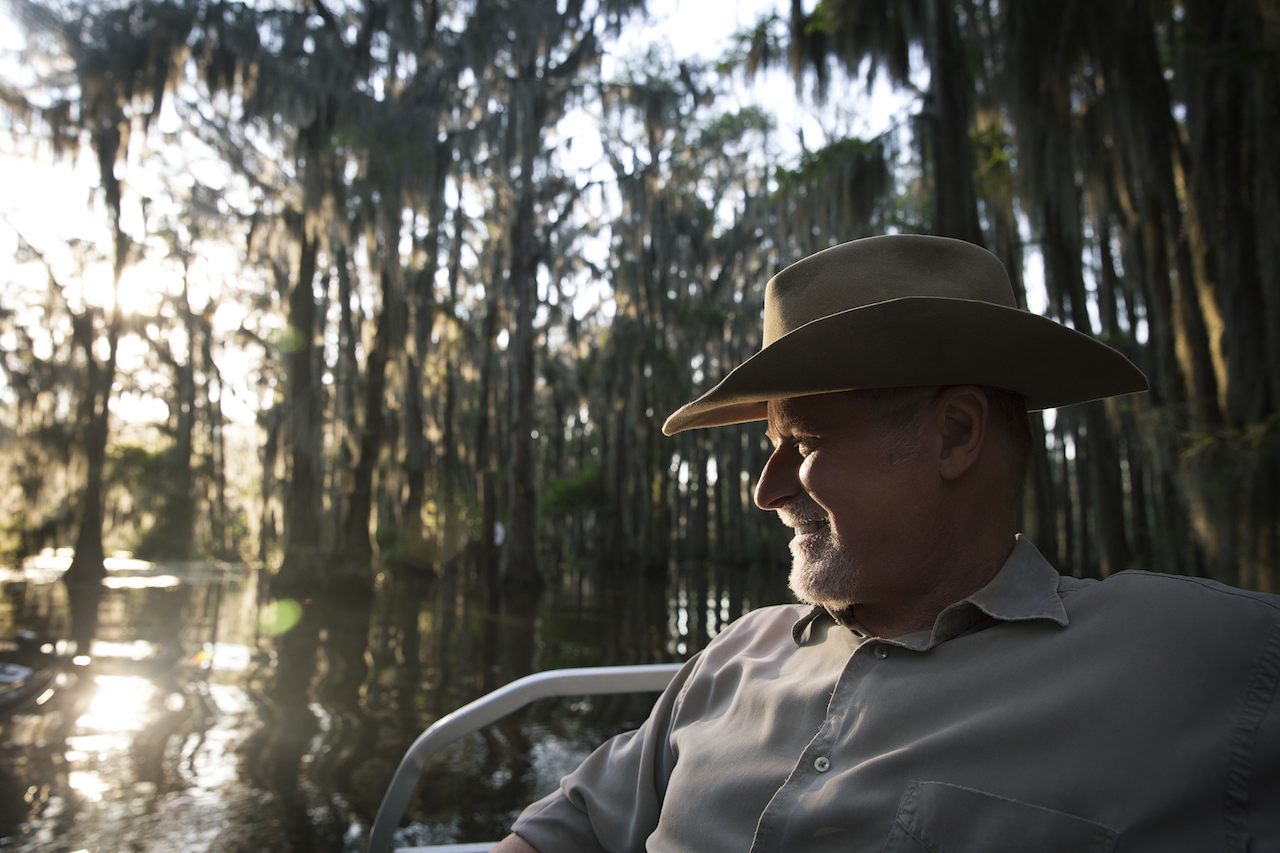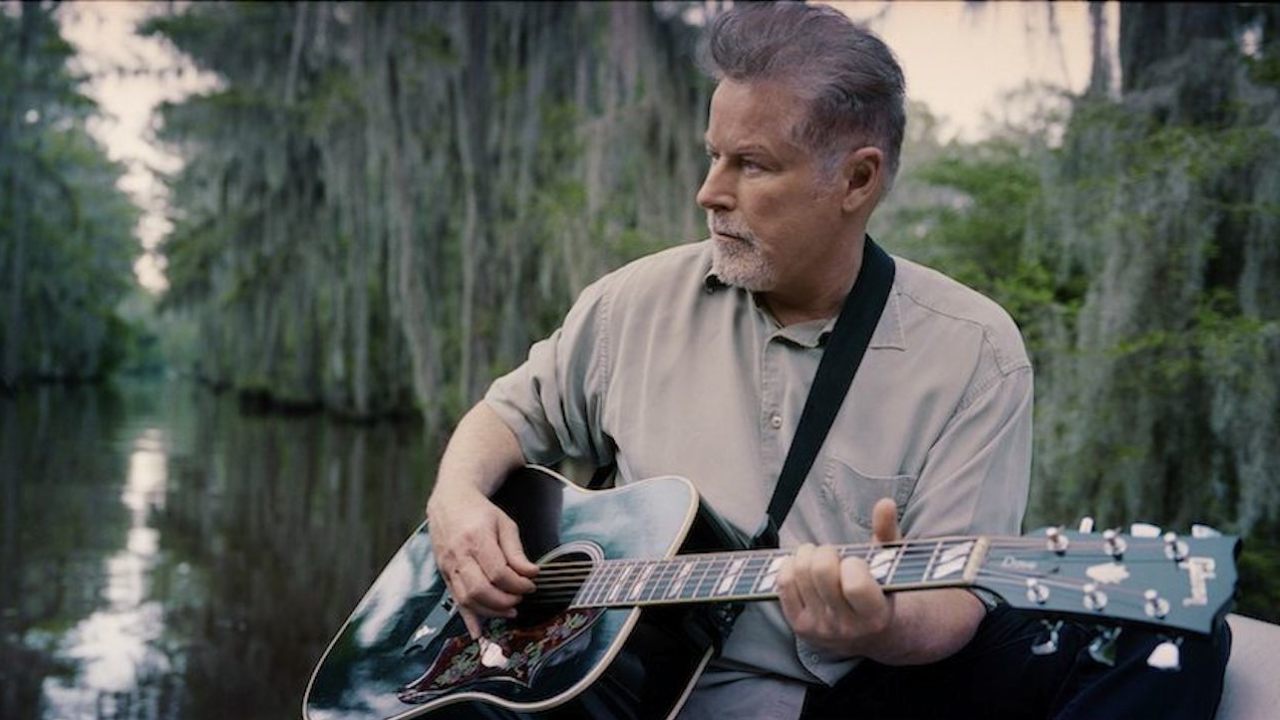Don Henley, singer, drummer and co-songwriter with America’s biggest-ever band, is bats about bats.
He surveys the view of the river outside his Austin, Texas hotel window, specifically the area by the bridge, and the “literally millions” of winged creatures that, at dusk, fly out and darken the night sky. “They go off to gather bugs, then come back,” he says in a low, grumbling drawl. “There are a lot of bats here because of the caves.”
The son of a farmer, Henley knows his subject. “Bats are very valuable animals for agriculture: they’re as important for pollination as bees. They’re also a big tourist attraction round here. You can see lines of people standing by the bridge, watching at night. It’s pretty amazing.”
There is the slightest trace of a smile on his face as he considers the wonder of nature, like a country-rock Attenborough. “You can hire a boat out to see them more clearly,” he advises although, he adds ruefully in his best Cockney accent, “you might get shat on.”
There’s a track on your new solo album Cass County called The Cost Of Living that goes, ‘Me, I take the hand I’m dealt.’ Is that you?
Yeah. Or if it’s not me, it’s the person I’d like to be. Actually, a lot of things in my life have gotten better in my sixties. I’m two years away from seventy and things aren’t that bad. I’ve got my health, I’ve got four wonderful children, I’ve got a great wife, there’s my work. Things are pretty good.
Are you happier at 68 than you were at 28?
Not in every respect. I wish I had that energy. But I’ve gone back to studying the Stoics, like I did at college when I read English and Philosophy. They had the attitude of taking everything as it comes. As we so inelegantly put it these days: shit happens.
What sort of shit?
I’ve had my mountains to climb. The death of my parents; the break-up [in 1980] of the Eagles was a real tough one for me; finding my feet with my solo career; illness in my family – my wife has multiple sclerosis and we deal with that on a daily basis, although she’s doing pretty well; my wife’s mother has been diagnosed with Alzheimer’s… But we all have our crosses to bear. Sometimes I have to remind myself, ‘The glass is half-full.’ I might be having a bad day, but I know I’m one of the luckiest son of a bitches on earth.
The Eagles have been described as “an anonymous monolith”.
I like that. We always avoided the spotlight. Because we believed in the old adage that familiarity breeds contempt and absence makes the heart grow fonder. And it worked for us. That’s the reason we were able to break up for 14 years and come back strong. People missed us, because they didn’t have that big a taste of us in the first place. We we consciously avoided the spotlight. We wore our street clothes onstage, which we leaned from The Byrds and Buffalo Springfield.
Also on The Cost Of Loving, you sing about ‘the one that got away’. Will people speculate that it’s about your ex-girlfriend Stevie Nicks?
People speculate about all kinds of things. But no, it’s not Stevie. It might be about my high school sweetheart. We buried her last year. Breast cancer. I’m friends with her husband, even though we were bitter rivals in college. When she became ill I helped with getting her into the best cancer hospital in America. I sang at her funeral. It’s great to grow up, you know?
I hear that former Eagles bassist Randy Meisner is having health problems. Isn’t it ironic because Randy was the clean-cut one who kept away from everything?
No, he didn’t keep away from everything. None of us kept away from everything. [Pause]. He went deeper into it as he got older, and just kept going. Every young man goes through a self-destructive streak. Some last longer than others and it’s much harder for some men to pull themselves out of it. A lot of it has to do with how one feels about one’s self. But we’ve been there for Randy and done everything we could, and now it’s in the hands of an executor, who has been appointed by the courts to handle his affairs.
You ended your self-destructive streak back in the 80s, didn’t you?
Yeah, and I did it without a program. I’m not being derogatory about programs –they work fine for some people. But I always knew I was going to stop, especially when I decided it was time to have children. Somebody asked me about regret the other day, and I said a little regret is only natural and right. But I’m never going to let past mistakes define who I am now. I had my wild thing in the 70s and part of the 80s. I don’t want that anymore. I like my domestic life now – it keeps me grounded. Besides, when we were young we could get away with all that and still deliver a good performance. Now it takes every bit of energy and focus to deliver, because at the ticket prices we charge the people deserve the very best show we can give them. Customer satisfaction is very important to us now.

On That Old Flame, also from Cass County, you talk about an old flame getting back in touch. Is it a true story?
Uh-huh.
Anyone we know?
No. It wasn’t Stevie!
Has your wife seen it?
Yeah, she’s fine. I’m in touch with a lot of my exes, and she respects them. If someone was a valuable person in your life and you loved them, there’s no reason you have to stop loving them. It just doesn’t have to be romantic love. I care about these people. But there’s no affairs going on, no hanky-panky. They’ve just matured into respectful friendships.
Are the Eagles America’s Beatles?
I’ve heard that comparison, but I don’t think we’re in that league. Good Lord, no. People do relate to those songs, though.
Your ex-label boss David Geffen said you were a “malcontent”. Was he referring to the sense of melancholy you brought to the Eagles?
No, I think he was talking about business; that I didn’t like the way I was being treated. I put all this effort into the [solo] records but there was no effort to promote them. And I gave him shit for it – that’s what he’s talking about.
And they called the Eagles “the mellow cowboys”.
“Mellow” – that’s a media term that got stuck to us. It originated in New York, which is meant to be all cutting edge and punk while everything on the West Coast is all laidback. There was nothing mellow about us. [Eagles manager] Irving Azoff taught us a lot about the business, and how to survive it. It’s a tough business to survive in, and you can’t be a pansy or a pushover.
Do you think part of the Eagles’ popularity lay in the fact that they created a sense of community after the 60s ended?
Yeah. But it was a false sense of community. The whole Woodstock generation – gonna take everything back to peace and love – it was bullshit. it was an illusion because the same people were still running the country. Our generation might have helped end the Vietnam War, but on the larger scale the power went right back in the hands it was before.
*Take It Easy* was a pretty successful palliative, though.
Yes, it was a palliative. But we also wrote some pretty dark stuff later on: Hotel California was pretty dark and we commented on the Nixon administration with a song called On The Border.
Does good music need bad government to thrive?
I think so. But timing was big for us. The Baby Boomer generation had mobility, we had cars, everybody wanted to go West, California was the promised land… and Take It Easy was a great driving song. We wrote all these songs about the magic of the West. People heard these great songs by us and The Beach Boys and The Mamas & The Papas all over the world and took them seriously and they all moved out there! And now it takes almost half a day to gas up the Mercedes or pick up a six-pack of Evian water.
The Eagles were reviled at the time, but do you think they seem to be more respected today?
Yeah. It’s like that old saying: ugly buildings, politicians and whores all get respected if they stick around long enough. Part of it just has to do with ageing aand outlasting everybody else. We have a reputation for playing hard, but we worked hard, too. We had disciplined songwriting sessions – Glenn [Frey] and I would sit down every day at the table, no matter what we did the night before, and we would write songs. We created a body of work that means a lot in the American lexicon, that is part and parcel of the lives of the Baby Boomer generation. The music is bigger than us, and it took all of us to do that. Glenn and I led the charge, but everybody contributed. And the songs are the legacy. They’re what lasted and will for a while.
_
